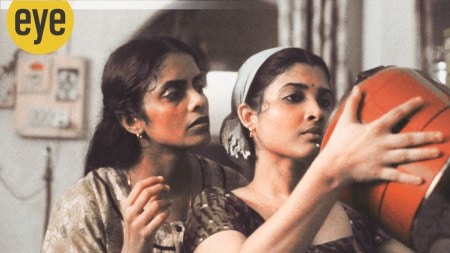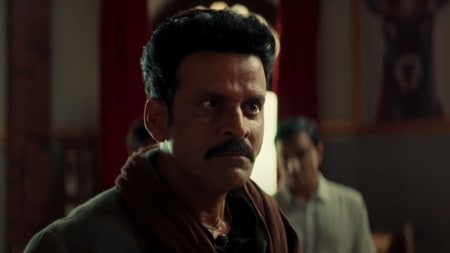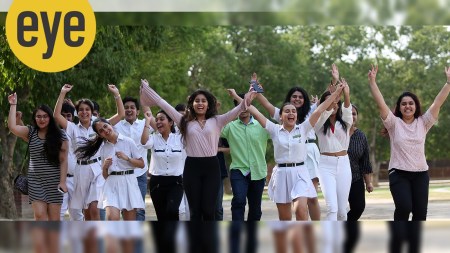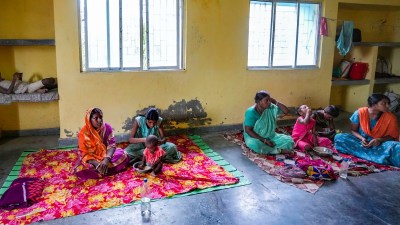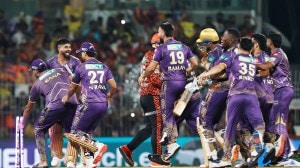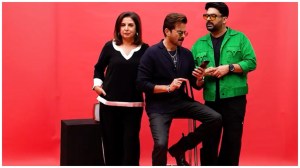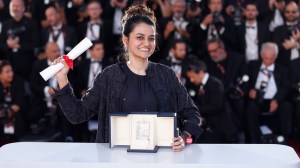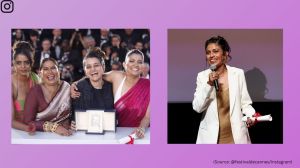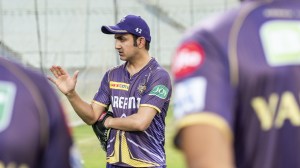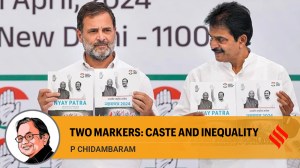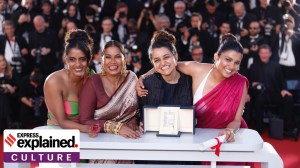- India
- International
‘Job of a scholar is not to become a politician’: Ramachandra Guha
The historian on editing a new series of biographies of Indian personalities, starting with Ashoka, and why both the Left and the Right are biased in their interpretations of history
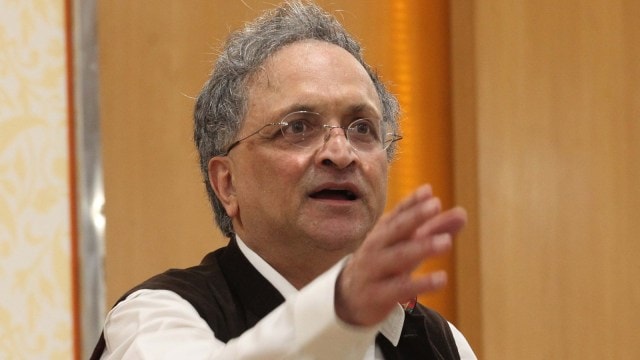 Photo of Ramachandra Guha. (Source: Archive)
Photo of Ramachandra Guha. (Source: Archive) Why was this series, Indian Lives (HarperCollins India), launched?
I have had a long-standing interest in biography. My books have often been portraits of individuals set against a larger social or political context. Around 25 years ago, I published an essay called ‘Why South Asians don’t write good biographies and why they should.’
Since then, the trade market for history books has grown substantially. Readers want to approach history through lives because it’s more accessible. But scholars have methodological, philosophical and ideological reasons for not wanting to spend five years or 400 pages on a single individual.
This gap was filled by enterprising amateurs, writing biographies that were either poorly researched, or carelessly written, or both. I realised that now there are enough historians of India, living here or overseas, whom I could tap to fill the gap more credibly.
I also know that Indian publishers don’t pay very well because serious non-fiction books often don’t sell that much. I wanted authors to be properly compensated. I was able to find three philanthropists interested in books and scholarship, who would trust my scholarly judgment. Every writer of a book in this series gets Rs 12 lakh, independent of royalties.

The first book in the series, Patrick Olivelle’s Ashoka: Portrait of a Philosopher King is a political biography, but it is also a social, philosophical, moral and cultural study. Later books in the series will focus on social reformers, writers, scientists, and feminists apart from rulers or politicians.
How was the list of personalities and writers decided?
I decided it. There were two ways I went about it.
Firstly, there were some respectable scholars I knew who were already working on an individual. These included Chitralekha Zutshi on Sheikh Abdullah, Akshaya Mukul on Jayaprakash Narayan, and Prashant Kidambi on Bal Gangadhar Tilak.
Secondly, there were some scholars I reached out to because I knew that if they turned their hand to writing a biography, if they overcame the inhibitions that the academy imposed on them, they’d do a great job. For example, I’ve been very keen on biographies of two male Gujaratis who haven’t been well served: Mahadev Desai, who was Gandhi’s secretary, and KM Munshi, a right-wing writer who was a great influence on Gujarati literature. So, I asked a historian of Gujarat, Aparna Kapadia, and she suggested working on Kasturba Gandhi instead. I said sure, because she was equally qualified for that subject.
Why was Ashoka chosen as the first subject?
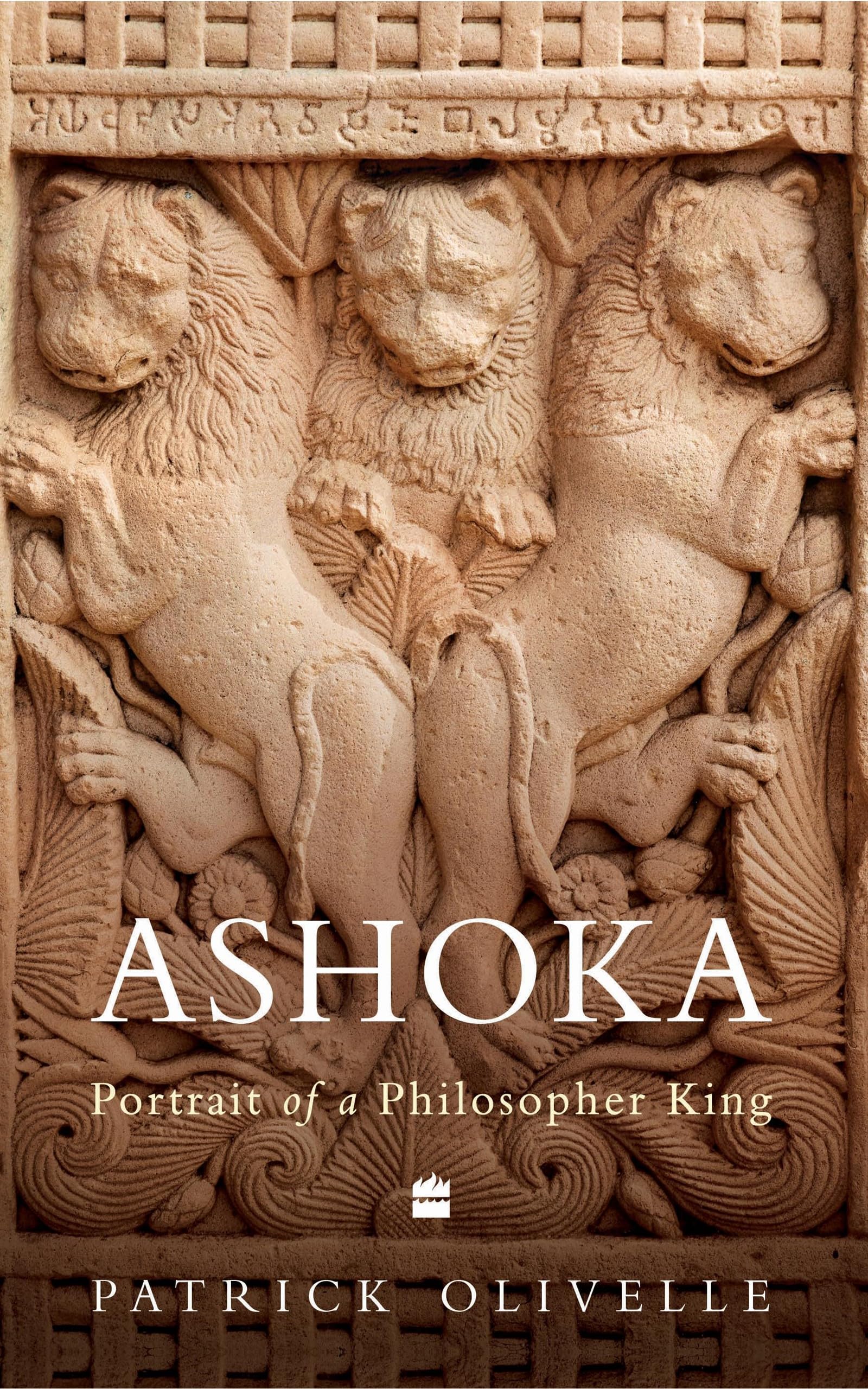 (Source: HarperCollins)
(Source: HarperCollins)
Patrick Olivelle belongs to the second category of scholars I approached. He hadn’t yet written a biography. I asked him because he’s a great historian of ancient India, has written on Ashoka, on Kautilya, on moral philosophy, on religion and family life, and he agreed. He already had everything it took from a scholarly, linguistic, and intellectual point of view to do justice to his subject.
You mentioned in the foreword that you wanted to find writers who wrote accessibly and elegantly. Is there a lack of such writers in Indian academia?
The majority of scientific disciplines are those in which the sophistication of one’s original research cannot be communicated in everyday language. A physicist, cosmologist, geneticist or economist would have to seriously dumb down their work to tell you and me about it.
On the other hand, history and anthropology are two branches of scholarship in which the depth and detail of your empirical research can be communicated in everyday language. I’ve always argued that history is a branch of both literature and social science. In the hands of some practitioners, it is only literature – it has a flowing narrative, but political economy and social structure suffer. With others, it’s more social science – the analysis is strong, but the prose is pedestrian.
There are very great historians who transcend this, and make readers think about human conflicts and the rise and fall of institutions while writing elegantly too. Linda Colley, Simon Schama, Marc Bloch are or were great examples. So is the anthropologist, James Scott.
Politicians often take historical material out of context. Should scholars do more to counter such narratives?
That’s a problematic position to take. The job of a scholar is not to become a politician, or to become a gladiator in electoral politics. The way the left speaks of modern history is plainly biased. The right is doing the same thing with medieval history. I never get into contesting WhatsApp history. I made an exception one month ago and wrote a column on the anthropologist Verrier Elwin, who was my first biographical subject. Himanta Biswa Sarma, the CM of Assam, told some lies about Elwin and I had to correct him.
Generally, I always believe that intellectuals should not identify with political parties or even political ideologies. Unfortunately, mine is a minority position, especially among historians in India.
In the book’s blurb, you say that India is neither the most important nor the most powerful country, but it has claims to be the most interesting. Could you elaborate?
I first made this claim in India after Gandhi 16 years ago. I stick to it — because of India’s ecological and cultural diversity, its civilisational depth, the history of persistent conflict and discrimination. Someone once said that India is home to all that is truly elevating and all that is truly degrading in the human condition. That’s why we produce so many unusual and remarkable people. It’s a great tragedy that we’re not writing about them in an interesting way.
India is endlessly fascinating but also extremely exasperating. We’ve tried to build a democratic polity on a hierarchical infrastructure. As Ambedkar remarked, ‘Democracy in India is only the top dressing on soil which is essentially undemocratic.’
Of the 11 books listed currently, I noticed only two are on women.
I’ve listed books on Kamaladevi Chattopadhyay and Kasturba Gandhi. There are four or five more books on female subjects that are in the works. I didn’t list them because they weren’t very far along in the research phase. I didn’t want to put pressure on writers to deliver fast. We’ve planned Sarojini Naidu, Mirabai, Hansa Mehta, Mahasweta Devi, and Savitribai Phule. But these are mostly women from modern history. Because if you go back to the Mughal period, for example, women are largely invisibilised in narratives.
May 27: Latest News
- 01
- 02
- 03
- 04
- 05



